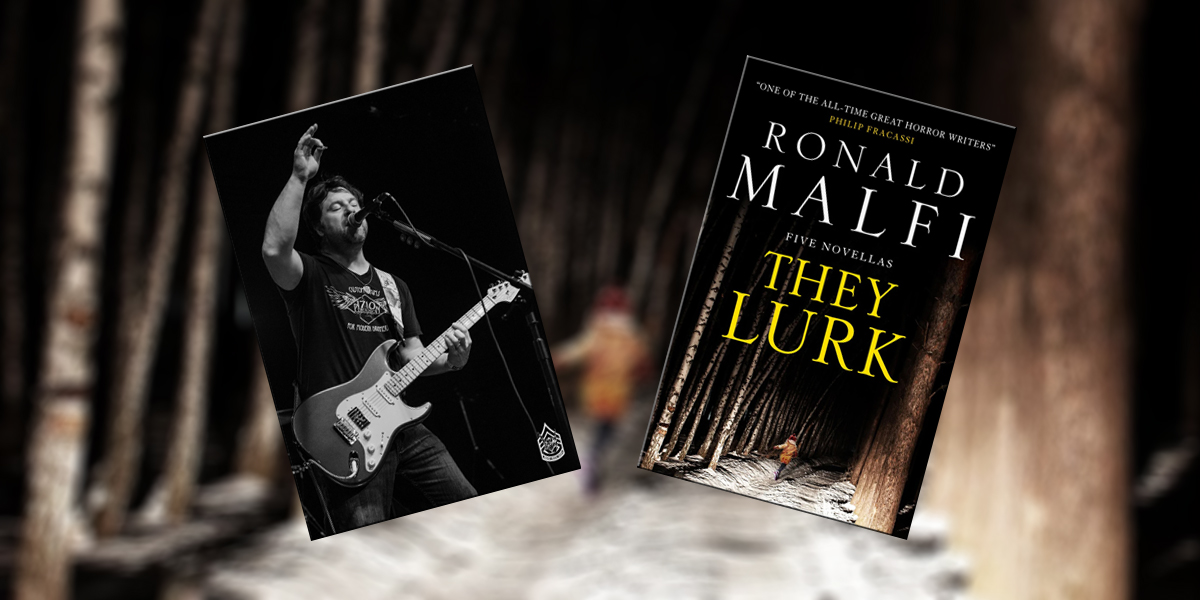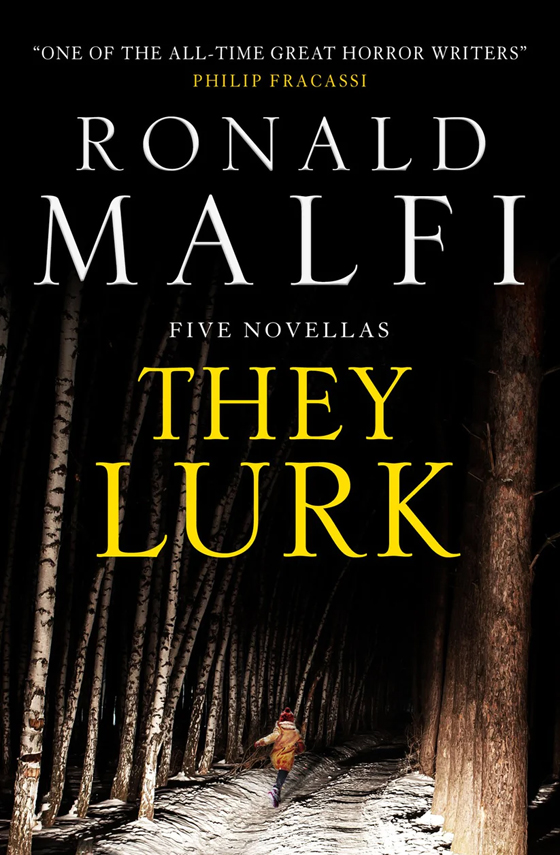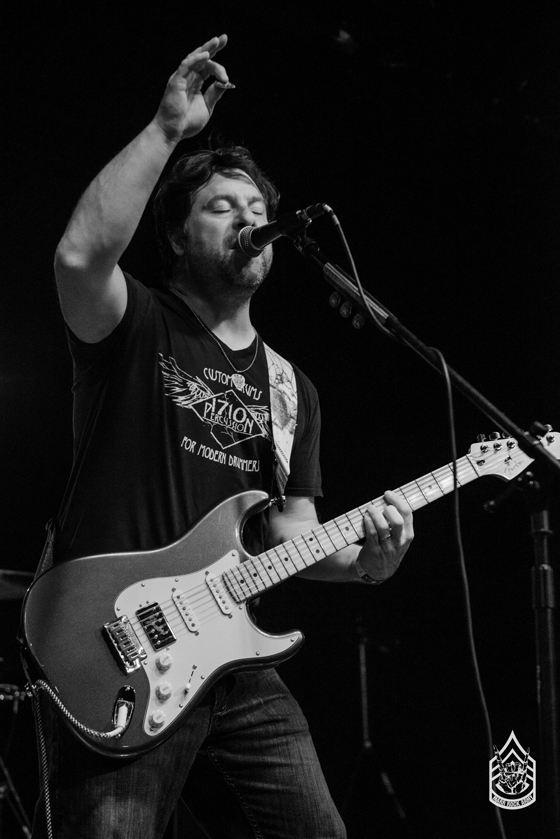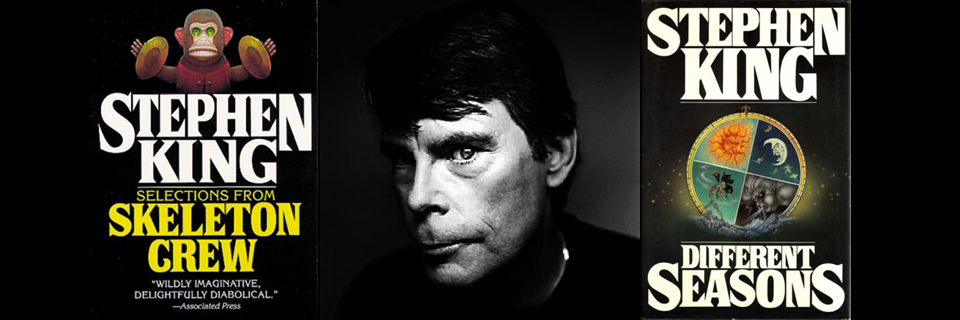
If you’ve read a Ronald Malfi novel or story collection, odds are it won’t be your last. He’s an author with the kind of voice that reels you in and suggests you stay for the night. His characters are fleshed out and intimately flawed, and often they’ll let you see each and every scar. The situations these individuals fall into pulsate with dread. He’s the kind of writer you read and feel with. In other words, Malfi writes from the heart while going for the jugular.
His latest collection of terrors has a quote from award-winning author Philip Fracassi on the cover that correctly hails Malfi as “one of the all-time great horror writers.” One of the most prolific horror creators in the world currently, Josh Malerman tags Malfi as “a modern-day Algernon Blackwood.”
When it comes to literary output, you’d be hard-pressed to find someone churning out gems as consistently or quickly as Mr. Malfi. With seventeen novels, eight novellas and four collections since 2000, he’s not only one of the hardest workers in the industry but he’s also one of the most approachable. He corresponds regularly on social media with fans and he’s one of the most engaging and entertaining podcast guests you’ll find. When he’s not writing or talking about writing, there’s a good chance he’s commanding the stage as lead vocalist for the award-winning rock band, Veer.
It’s a small miracle Malfi has time to sleep, let alone sit down and discuss the books that have enriched our beloved genre for two decades and running. But that’s just what he did recently with Ravenous Monster.
Malfi’s latest collection, They Lurk, was released over the summer, and has earned rave reviews across the board. The book is a haunting ensemble of five novellas, four of which have been out-of-print for years and a new one that is sure to burrow into the darkest corners of your mind and stick around for a while.
Packed into 384 pages, it’s the sort of collection that plays best beside a fire during a weekend camping trip, preferably after midnight. Or on a sleepless night while a storm growls outside. Or after the kids go to bed and you’re left with just your imagination and the darkness outside. With the previous releases being outdated and largely unavailable, They Lurk was my introduction to all five stories. Paranoia, terror, maybe even a little disgust—this was one of the most satisfying collections I’ve read in a while. Naturally, I was curious as to whether Malfi approached a short story or novella differently than a novel.
“The approach is generally the same, no matter what I’m writing. It usually involves a lot of ruminating and stewing over the story before I actually set pen to paper. If I’ve got a year to write a novel, about nine months of that is spent in my head, thinking about the story, the characters, and just getting an overall feel for what it is I’m going to write. It’s no different with novellas, although in the past, the majority of the novellas I’ve written were not under some sort of deadline, so I could take my time with them. The novellas that make up my book Ghostwritten are the exception since that was contracted the same way a novel would be. I sort of had to divide my time evenly between the four novellas. But really, there’s no huge difference in my approach. I just need to be in the right headspace.”
That being said, Malfi doesn’t mince words when discussing which form he prefers.
“I prefer novels—big, rich, chunky novels. I like the idea of exploring the world of a novel in such depth that the reader can’t help but believe in the realness of it. That requires legwork, requires high page counts. I’m most comfortable in this form, because although I stress over every sentence, not every sentence needs to be perfection. You can have a boom-mic shadow creep into a frame, so to speak, and your readers will be mercifully accepting of that. This isn’t true with short stories. Short stories are more difficult to write, and I feel I’m just okay at writing them. Brevity is the name of the game, and your readership tends to be less forgiving—rightly so—about those boom-mic slips. I’ve written quite a few short stories, but they always feel like a chore. And they almost never come out the way I intended from the beginning.”
The ‘boom-mic theory’ is both interesting and sensible. The spotlight glares brighter on a short story because it’s turned on for less time. One would think, then, that there may be a different routine for Ronald when it comes to writing a novella versus a longer piece, but it’s simply a different process each time.
“It’s wholly organic. I don’t outline, aside from the occasional phrase scribbled on a notepad, and I spend most of my “writing” time just thinking about the story and its characters. Every book is its own thing, so there’s no set way I approach them. One might come easily, or one might require a lot of struggle and rewrites before I really find the story in it that I’m looking to tell. My novel Black Mouth was a lot like that—I’d written it to completion twice, then tossed it in the trash heap, because it wasn’t coming together. Yet I’d needed to do that because that act of writing and rewriting was what opened the door to that particular story for me. They don’t all work that way, but I’ve learned not to become too discouraged when it happens like that. There are a few novels I’ve written that have completely different versions tucked away in a desk or a trunk somewhere. That’s just part of the process. I suppose it might be different if I outlined first, but I fear that would strip away the organic nature of storytelling, and I’d just grow bored.”
Related Content:
Algernon Blackwood: Nature’s Dark Muse
All Hail the King: A Tribute to Stephen King’s Short Story Canon
The Music of John Carpenter’s The Fog
There’s nothing boring in between the covers of a Malfi story, and his prose is just as vital to his stories’ penchant for sticking with a reader for days afterward. In fact, Malfi has been referred to as a ‘lyrical horror fiction’ writer. That voice isn’t developed overnight, and the author has embraced the work he’s put in.
“I think [my writing voice] comes from reading a variety of different authors, and not just genre fiction. It seems that every time I pick up a new author or a new book, I learn something about myself as a writer, and feel that I grow a bit, too. The atmosphere and character thing, those are just ways of writing that appeal to me as a reader. If you describe your book as a fast-paced thrill-ride, yawn, no thanks, not for me. Give me a dense 800-page novel where the author describes the fabric of the goddamn drapes. That’s for me. I languish in language.”
When it comes to the voices that came before him, Malfi points to Stephen King, Joyce Carol Oates and Peter Straub as driving forces during his formative years as an author.
“One of the biggest author influences on me was the late, great Peter Straub, who taught me that authors have the ability—no, the responsibility—to push the limit of their fiction, and that horror fiction in particular can be a beautiful, complex work of art.”
With a mutual love for Mr. Straub’s work, I was curious which of the late great author’s work is Malfi’s favorite.
“I love them all, but the one I find myself going back to the most is The Throat. It’s not even really a horror book, although there are some ghostly inferences in the first third. It’s just such a rich novel, at once beautifully crafted yet matter of fact in its prose, and it’s one twisty whodunnit ride. It kills me to think that there will never be another Peter Straub novel.”
Then there’s a literary icon who many wouldn’t associate with horror.
“I fell in love with Hemingway back in college, though I recognize that sounds a bit pompous. Truth is, Hemingway understood the power of brevity, of keeping much of your story hidden behind the curtain. There is so much depth to Hemingway’s writing that isn’t even on the page, it’s staggering.”
When you’ve got as many projects as Ronald does at a single time, it’s difficult to imagine how twenty-fours are nearly enough to complete a day’s work. He’s not just a writer and a musician—he’s a proud father and a grateful husband. There really shouldn’t be enough time. Yet somehow, he manages.
“I’ve got a pretty cool wife who holds down the fort while I do all this nonsense. Seriously, it’s a juggling act, but it’s all I do—my creative outlets and my family take up all my time. I don’t play golf, I don’t watch football, I don’t squander time doing countless other things. I’m either working or spending time with my family. Even my time with friends inevitably evolves into discussing various creative projects. I just can’t sit still when it comes to that stuff. Everything always has to turn into something, if that makes any sense. My band VEER has had a busy and successful year, and we released our second studio album, Soft Machines, in July. The four of us put so much into this record and I’m so happy with it, but at the same time, there were nights when I’d leave the studio in the middle of the night only to go home and write, because I also have deadlines. But really, the band and the writing aside, my family takes up the majority of my time, and I wouldn’t have it any other way. I mean, we’re all chock full of family over here.”
Considering Malfi’s impressive music career, it was only right that I asked him to suggest a few soundtracks to listen to during my next writing session.
“I’m listening to John Carpenter’s The Fog soundtrack right now. I tend to get stuck on one for a while and play the hell out of it. That happened this past year with Richard Bellis’s It soundtrack—the score from the 1990s miniseries, not the newer films, whose music was largely forgettable. Another couple of favorites are Jerry Goldsmith’s Poltergeist and The Swarm, plus David Julyan’s brilliantly understated score for Neil Marshall’s The Descent. When I was in high school, I had an audiocassette of Danny Elfman’s Beetlejuice that I played until it was white noise. Nowadays, I prefer my horror music scores on vinyl, mostly because I write next to a descent record player and it’s convenient, but I do love the uncompromised, uncompressed sound of vinyl records. I recently learned that Frank LaLaggio, writer and director of the informative 1988 horror film Lady in White, not only composed the score for that film himself, but recently released it on vinyl, so that will probably be my next purchase.”
By now, you’re probably wondering what’s on Malfi’s agenda next. It was music to my ears when he told me he has a novel coming out next year, as well. While I avoided even the slightest whisper of a spoiler, I think it’s safe to say the horror world is anxiously awaiting the next work from one of the hardest working gentlemen in the industry.
You can read up on all things Malfi by checking out his author website here and check out his band at veerband.net. As I mentioned earlier in this piece, Malfi also is one of the most generous authors on social media with his time. Do yourself a favor and check him out.














